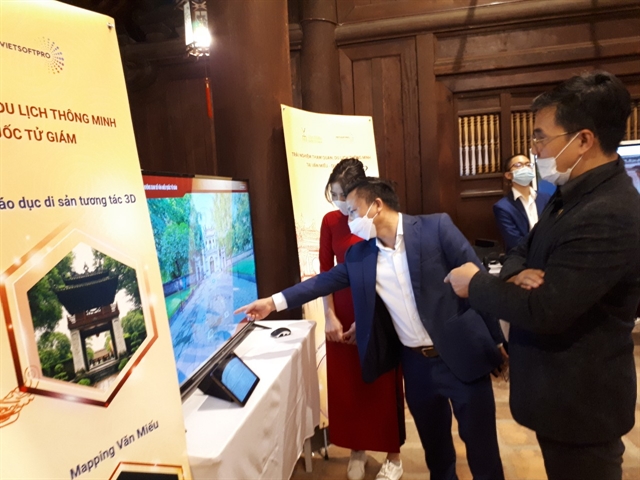[ad_1]

HÀ NỘI — Digital transformation is an urgent requirement and inevitable trend of the global tourism sector, according to Hoàng Quốc Hòa, vice director of the Tourist Information Centre under the Vietnam National Administration of Tourism (VNAT).
He made the statement at the Digital Transformation in the Tourism Sector programme recently held in Hà Nội by the centre and Vietsens Technology Group Joint Stock Company.
According to Hòa, digital transformation is also a strategic issue in the context of the Fourth Industrial Revolution and the COVID-19 pandemic.
“In recent years, VNAT has focused on implementing the guidelines and directions of the Party and State on digital transformation,” he said.
“A smart tourism ecosystem in Việt Nam has been gradually formed through activities such as establishing a digital database system for the national tourism sector and interconnection of information systems between management agencies, localities and enterprises; applying digital technology to support tourists and developing smart tourist destinations; encouraging innovative start-ups and applying technology to ensure safe tourism during the pandemic.”
Lê Xuân Kiêu, director of the Centre for Cultural and Scientific Activities of Văn Miếu – Quốc Tử Giám (the Temple of Literature), agreed that digital transformation was an indispensable requirement in developing modern tourism.
“I highly appreciate the efforts of the Tourism Development Centre in implementing and applying science and technology in digital transformation. In the short term, we will launch a ticket management system adopting technology that is set to go into service on April 30,” he said.
Prerequisite
According to Ngô Minh Đức, chairman of HG Holdings and member of the Tourism Advisory Council, the application of information technology in Việt Nam’s tourism is at a lower level compared to other countries. A similar situation is also found in aviation, he added.
“Digital transformation is thought to be extremely difficult and costly, but it is crucial. I greatly appreciate VNAT’s determination to implement it. Otherwise, Việt Nam’s tourism will be backward and unable to compete. Việt Nam’s tourism is currently losing out as hotel owners have to pay up to 30 per cent commission to foreign companies.”
According to Đức, one of the prerequisites is mastering technology, from which Việt Nam’s tourism sector and businesses could thrive.
“It is a good news that we have a customer-centric national tourism. I hope that tourism and travel businesses will together work and upgrade the system so that we will not have to depend on foreign intermediaries like Agoda.”
He also highlighted the importance of connection and digital transformation so that the tourism ecosystem of the Vietnamese firms could develop and compete against other foreign counterparts.
Nguyễn Đức Thành of Vietsens said that in recent years they had focused on researching and creating a national tourist card that was integrated with multiple utilities.
“The card will offer a variety of conveniences to tourists like not having to queue to buy paper tickets, avoiding environmental pollution and saving travel costs. In addition, it can be used as a bank card for payment in other fields such as healthcare, schools, transport, tours or accommodation,” he said.
“I expect that the Department of Tourism will promote the issuance and use of Vietnamese tourist cards,” said chairman of HG Holdings Ngô Minh Đức. — VNS
[ad_2]
Source link
